INNOVATION
By Laurence Neville
No list of influential figures of the past quarter-century would be complete without Soviet premier Mikhail Gorbachev, US president Ronald Reagan and British prime minister Margaret Thatcher—the three most important figures in ending the key conflict of the previous era, the Cold War.
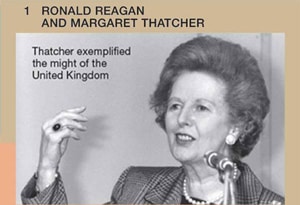
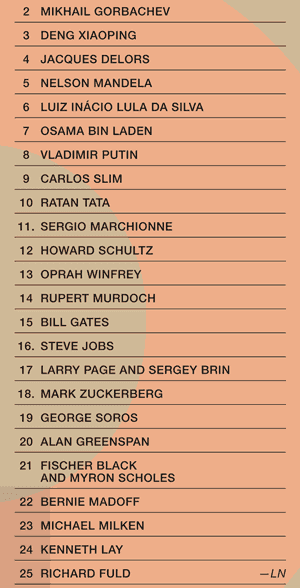
|
The world we live in today has been shaped in large part by the fall of the Berlin Wall in 1989 and the end of the Soviet bloc. Reagan and Thatcher were also at the forefront of a revolution in thinking about the role of the state and financial markets. For better or for worse, the free-market economy espoused by the two has come to dominate the world.
The current evolution of Europe and the European Union (EU) was shaped, in large part, by the end of the Soviet era, and thus by the aforementioned three leaders. Spend an afternoon in a café in sophisticated Prague and it is difficult to imagine that less than a generation ago it was on the front line of the Cold War. Of course, the expansion of the EU and the creation of the euro also owe much to president of the European Commission Jacques Delors, who was Thatcher’s ideological opposite.
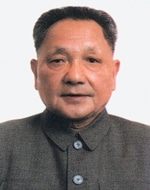 |
|
Deng Xiaoping transformed China, and thus the world Photo Credits: YANGCHAO/ Shutterstock.com |
On the other side of the globe, Deng Xiaoping, who ruled China from 1978 to 1992, accomplished much the same thing but on a grander scale. In the process, he created an outcome that Marx could never have envisaged: China as a communist market economy. In Brazil, Luiz Inácio Lula da Silva finally managed to ground the country’s ambition in the economic and political stability it needed to become a major global player.
Through a very different mechanism, South African political activist—turned prisoner—turned president (in 1994) Nelson Mandela also changed the world. He not only helped bring about the end of apartheid in South Africa but was pivotal in shaping global views on civil liberty, and he continues to this day to actively protest political oppression.
BUSINESS LEADERS
In business, the post-1987 era has produced its fair share of titans. Starbucks’ Howard Schultz reinvented an existing product—coffee—and created a brand and format that he successfully exported around the world and that has spurred countless imitations. Oprah Winfrey effectively did the same thing to herself: In a celebrity-obsessed culture few individuals are more integrated into people’s everyday lives. In Mexico and India, Carlos Slim (the richest person in the world) and Ratan Tata (of the Tata Group) created business empires that signal the growing importance of their countries to the global economy. Sergio Marchionne is Fiat’s turnaround king who also brought Chrysler back into profitability last year.
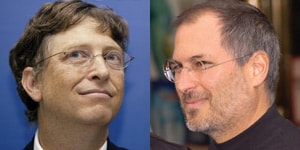 |
|
Gates and Jobs sought to bring computers to the people Photo Credits: GATES: 3777190317; JOBS: FEATUREFLASH / Shutterstock.com |
Perhaps the dominant sector of the post-1987 period in terms of business personalities has been technology. Not traditionally seen as a tech player, News Corporation’s Rupert Murdoch has more aggressively exploited advances in technology—most notably satellite television—than anyone of the past 25 years. Among more traditionally-defined IT leaders, Microsoft’s Bill Gates, Apple’s Steve Jobs, Google’s Larry Page and Sergey Brin, and Facebook’s Mark Zuckerberg (despite that IPO) can all legitimately claim to have transformed the lives of a sizable proportion of the world’s population.
The mavericks of the era can be viewed as villains or heroes, depending on the outlook of the observer: George Soros is perhaps the highest-profile hedge fund manager of his generation but will be remembered by some for breaking the Bank of England in 1992. Similarly, Fischer Black and Myron Scholes (who effectively created today’s derivatives market) are ogres to some but noble-minded academics to others, while former Federal Reserve chairman Alan Greenspan is alternately vilified for his role in creating the global financial crisis of 2008 and praised for enabling financial markets development.
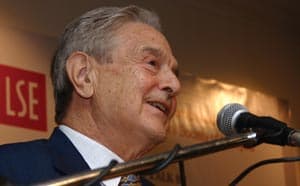 |
|
Soros showed one man could bring an economy to its knees Photos credits: ADRIN SHAMSUDIN/ Shutterstock.com |
More universally scorned players are Ponzi scheme fraudster Bernie Madoff, convicted insider trader (and junk bond king) Michael Milken, and Enron boss Kenneth Lay and Lehman Brothers’ Richard Fuld. The scandals wrought by their actions—and those of certain fellow executives at their respective firms—brought disrepute on their industries and caused enough destabilization to the wider economy to usher in new regulatory regimes (Sarbanes-Oxley in the case of Enron and Dodd-Frank in the case of Lehman).
Finally, paramount among the villains of the past 25 years is Osama bin Laden. Ironically, in a period in which grand ideological divisions were thought to have finished, his actions exposed an opposition to the Western world so visceral it far exceeded the enmity that existed between the US and the Soviet Union. Like the Cold War, this ideological conflict has also prompted hot wars—in Iraq and Afghanistan—that have proved divisive and (even supporters would concede) have resulted in outcomes very different from the original intensions.



